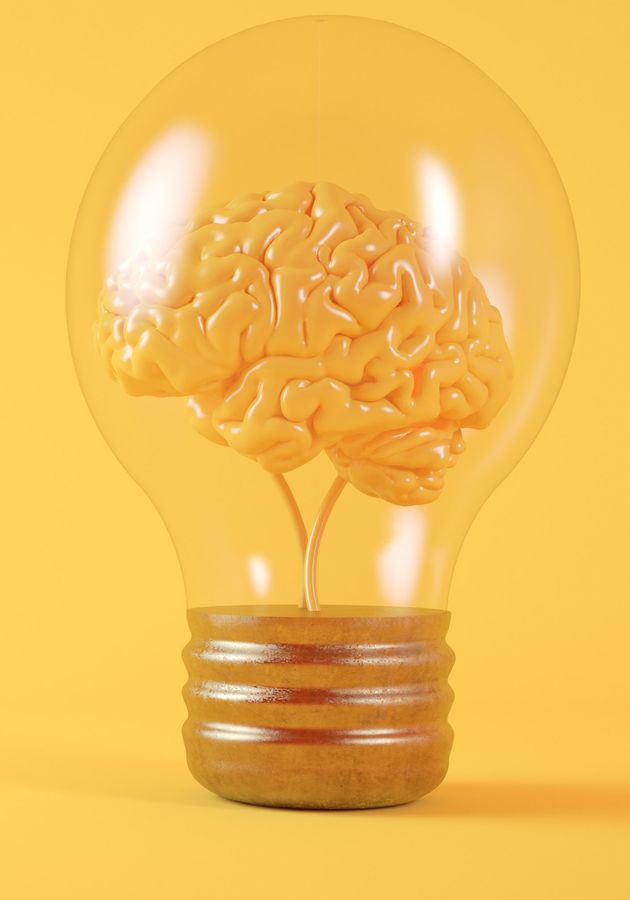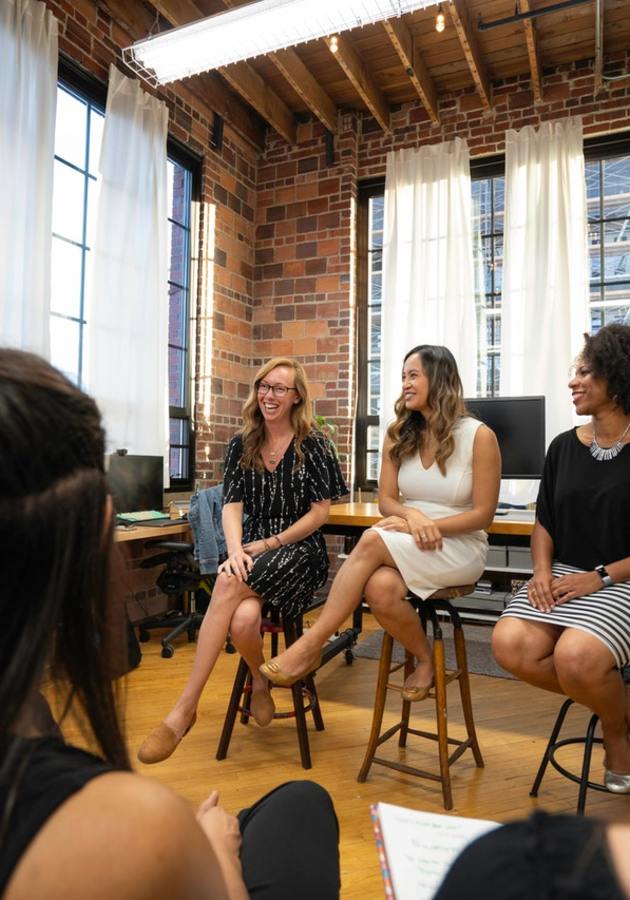The author presents his book as a beacon of hope for those who feel our society has moved too far away from the real virtues. Raised in a Jewish family, he learned to be distant and reserved towards strangers due to an outdated understanding passed down through generations. This led to a breaking point when he became frustrated with superficial conversations and the inability to connect authentically with those around him. Recognizing the inherent human need for connection, he now boldly engages in conversations with individuals everywhere, seeking to make these interactions enriching and uplifting. Brooks emphasizes that making those around us feel seen and heard should be a priority, especially when this ability seems lost. Take action now and start making meaningful connections.
Embrace growth, value authentic connections, and be compassionate
Raised in a reserved and more conservative environment, the author describes a gradual transformation that began in college and continued through life experiences, such as starting a family and becoming a father, that led him to face personal challenges. He emphasizes the importance of social skills and the ability to understand others on a deeper level for one's growth and achieving social well-being. The author points out that although we all live in a connected world, many lack the practical knowledge to build meaningful connections with others. According to him, the ultimate skill is making others feel valued, heard, and understood, relying on knowledge from various professions that deal with human behavior. He presents the concept of "Diminisher tricks," which are the main reasons for hindering mutual understanding, such as egoism, anxiety, the lesser-minds problem, and the static way of pitying.
Brooks argues that making generalizations prevents us from seeing the essentials of individuals. Drawing comparisons from Vivian Gornick's memoir, people often fail to see each other as they indeed are, even in close relationships. He highlights the idea that one should be an Illuminator, where he says one should be sensitive to others. He emphasizes that the attention one pays to the world can significantly affect and change one's life. Regardless of religious beliefs, it is crucial to the social good that we treat other people with kindness and strive to make them feel valued and heard.
Through the idea of Iris Murdoch, who says that "morality is rooted in how we see and engage with people in our daily lives," Brooks says that this is actually where the transformative power that can improve and encourage positive interactions lies. He adds that companionship, sharing life experiences through engaging in joint activities, and the power of being supportive for someone can deepen understanding and trust.
The author also emphasizes the transformative impact of traumatic events on individuals' perspectives, highlighting the subjective nature of reality by introducing the concept of constructionism. This suggests that each person actively constructs their perception of reality.
Modern society's epidemic of loneliness is a primary cause of depression
The epidemic of loneliness, exclusion, and the breakdown of social relations in modern society are the leading causes of depression, impaired mental health, and increased suicide rates. This breakdown contributes to a crisis of mistrust, meanness, and heightened hostility. Political turmoil and social polarization worsen these issues. The author suggests that focusing on kindness, generosity, and respect can overcome this widespread crisis. He advocates rediscovering ways to instill moral and social skills to address civilizational failure.
Through personal experiences, Brooks highlights how moments of anger and difficulty in understanding create divisions. Recognizing the complexity of social dynamics, historical legacies, and power structures is crucial for developing skills to foster a healthy environment for individuals of diverse backgrounds and conflicting ideologies. The author emphasizes acknowledging individual and group identities, and social locations to understand others in difficult times and conflicts. Creating a drive to build trust and mutual respect through better communication, even in the face of social divisions, is necessary. Support in moments of crisis for loved ones is crucial, as illustrated by the author's own traumatic experience with a friend's suicide.
Contrary to conventional advice, he characterizes depression as a force that distorts perceptions of time and space. He stresses the significance of being present for others, listening without judgment, and fostering a positive and accepting environment for openly sharing feelings and thoughts. He emphasizes the distinct nature of each depression case and the importance of addressing it with love, resilience, and humility. Childhood traumas, discussed by Brooks, are identified as significant catalysts for mental health problems, emphasizing how the quality of childhood can affect emotional well-being and success in adulthood. He explores the effects of both positive and negative parenting, illustrating how early wounds and traumas can be passed down through generations.
Recognizing and valuing each person, displaying compassion and support
As the Irish playwright George Bernard Shaw once wrote: "The worst sin against our fellow creatures is not to hate them, but to be indifferent to them: that is the essence of inhumanity." In other words, they say that the worst thing we can do to a person is to treat them as if they don't matter or don't exist. Making each person feel seen and heard is the most precious gift you can give them. If we are being honest, perhaps some of the most cruel acts in humanity have been caused by individuals who were overlooked and unheard.
Being a person who knows how to recognize the uniqueness and authentic gifts that each individual possesses within themselves can do wonders - enabling them to feel the courage and confidence to believe in their talents and seize the opportunity to maximize their potential in reaching their goals. We should strive to recognize in others when they need such support and when it is the right moment to approach them with warmth and affection, especially when they feel disconnected and misunderstood. And it's not just about being a kind and good person; it's the feeling of what you've done that has made someone feel better and filled someone's life with a little more cheerfulness and hope. In a world where this is to be lamented, being such a person is true preciousness.
First and foremost, the majority of us humans make decisions based on how those around us support us. No matter how satisfied and confident we are with ourselves alone, support is always welcomed, and we should feel once again that we are on the right path. Both in the private and professional aspects of life, when we offer support and hope to someone, we contribute to helping those individuals better handle crisis situations and think more soberly, therefore enabling them to make rational and correct decisions. People should also strive to cultivate an openness and embrace racial and ethnic differences.
Unfortunately, in these experiences, a large part of society faces the harsh reality of not feeling accepted in their environment and being viewed with a dose of contempt. Being a remedy for fragile social development doesn't mean attempting to address global issues; instead, it involves starting at the individual level. Let each of us strive to be someone who acknowledges and sympathizes with others, thereby serving as a remedy for societal ailments.
The significance of self-awareness and recognizing diversity in personality types
Five personality traits—extroversion, conscientiousness, neuroticism, agreeableness, and openness—significantly influence our daily lives, shaping how we handle challenges, make decisions, and respond in various situations. It is crucial to be aware of all they represent and that each of those personality types needs to be understood and valued to live in a healthy and functioning society. Here, the author takes George Bush as an example and his highly noticeable extroversion and how it contributed to his rise and becoming such an influential person in today's society.
As Brooks has emphasized on multiple occasions, he particularly highlights the role of parents and close individuals such as teachers, mentors, and friends in shaping one’s personality from early childhood. He delves into life tasks, drawing insights from developmental psychology. At the core of every individual, family, school, community organization, or society, there should prevail one primary skill: the ability to perceive others and ensure they feel acknowledged deeply. This involves genuinely understanding another person beyond mere acknowledgment to making them feel valued, heard, and understood.
He emphasizes understanding individuals better by recognizing the specific life task they are engaged in and observing how their minds evolve to complete it. Brooks categorically dismisses the idea that life proceeds through fixed stages but appreciates the value of identifying common patterns. He discusses three life stages. In the first stage, which occurs during the early teenage years, our focus is developing social identity and building relationships.
Idealism and the desire to fit in here have the greatest power over us, often leading us to conformism. We avoid conflicts and strive for people-pleasing. Reflectively, during adulthood, we struggle with the real side of life - finding the right path, career, and inner satisfaction. Connected consciousness is characterized by individualism, with a focus on self-control and an emphasis on personal achievement. Intimacy motivation takes the last place, while achievement motivation comes to the fore. Eventually, we all face the slap of the truth that career achievements are ultimately unsatisfying, even limiting.
The interconnectedness of individual experiences and cultural backgrounds
The author contemplates the idea that each person is part of a more significant cultural movement influenced by the choices made by their ancestors. The complexity of individual identity within cultural contexts is highlighted, using Zora Neale Hurston as an example. Hurston, raised in an all-Black town in Florida, had her identity and subsequent career as a writer shaped by the folklore and language of her community. The narrative stresses the significance of understanding one's cultural roots and how they shape personal perspectives.
Brooks explores cultural differences, drawing examples from diverse societies and historical periods to illustrate how shared symbolic landscapes construct our reality. He suggests that genuine understanding requires a nuanced approach, where cultural inheritances are recognized, and individuals are seen as cultural co-creators. This encourages readers to look past stereotypes and analyze the complex relationship between their experiences and cultural backgrounds.
Additionally, Brooks shares personal experiences as a Jew, highlighting the profound influence of ancestral heritage. Readers are encouraged to reflect on core issues about their own lives, such as the concept of home, the presence of the deceased, and their relationship with cultural traditions. The central theme here is that gaining greater awareness of one's cultural roots and the interplay of individual and collective histories leads to a deeper understanding of people as distinct individuals within a larger cultural framework. Contrary to the traditional perception of wisdom as offering straightforward solutions, the author proposes that wise individuals prioritize observing and comprehending the narratives of others.
According to him, discerning individuals adopt a coaching role rather than authoritative sages, guiding people through life's challenges by assisting them in processing their thoughts and emotions. From this perspective, wisdom is found in genuinely grasping others, observing their stories without judgment, and establishing an open and supportive environment for individuals to delve into their thoughts and emotions rather than offering overly simplistic answers.
Genuine connections require vulnerability and openness
Throughout the book, Brooks emphasizes that it is important to truly connect with a person in every aspect of life - one must first understand them. Whether in friendship, marriage, any relationship, or even business partnerships, it is inevitable to see individuals for who they really are.
As Brooks states: "The older I get, the more I come to the certainty that there is one skill at the center of any healthy family, company, classroom, community, or nation: the ability to see each other, to know other people, to make them feel valued, heard, and understood." Brooks asserts that we must strive to become better and be mindful of how we approach all the individuals we encounter in our lives. He highlights that good character is developed through skillful social interactions and a proactive effort to be a good listener.
Additionally, the author redefines wisdom, emphasizing receptivity, patience, and understanding in wise characters. Drawing on real-life examples, historical events, and examples from literature, Brooks illustrates the multifaceted nature of wisdom as a social skill practiced in relationships, promoting empathy and personal growth.
Final notes
David Brooks' "How to Know a Person" is a profound exploration of the human condition, emphasizing the transformational power of compassion and understanding. Brooks elegantly blends psychology, neurology, philosophy, ethics, and sociology to make a convincing case for genuine human connection. The book digs into the fundamental desire for every person to be heard, respected, and understood, offering a remedy to a culture which often destroys these vital connections.
The book serves as a guide, giving significant insights into the attention and discussions required to build connections. It offers practical strategies for developing understanding and empathy to heal divides in a world marked by fragmentation and misunderstanding. More than just a discourse on relationships, "How to Know a Person" is an ode to the art of loving people.
Brooks contends that deep empathic listening and compassion are essential for fostering genuine connections. The book offers vital ideas and sparks discussions that have the potential to alter society for the better. Whether you're looking for connection, longing to be understood, or simply inquisitive about the complexities of human contact, "How to Know a Person" is a fascinating and worthwhile read.
12min tip
For those feeling frustrated about not yet discovering their life's purpose, Deepak Chopra's "The Seven Spiritual Laws of Success" imparts wisdom on how cultivating spiritual calmness and mindful behavior can lead to the fulfillment of one's desires.





























